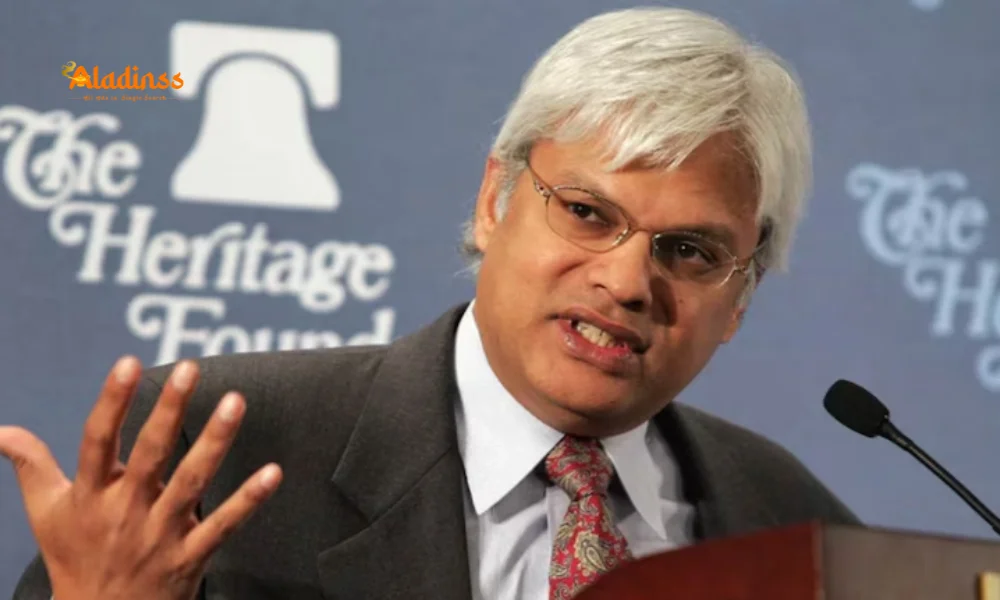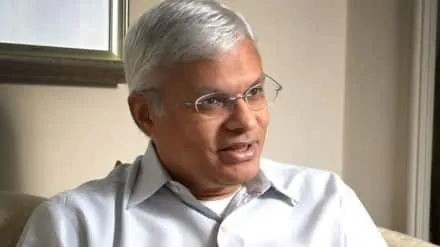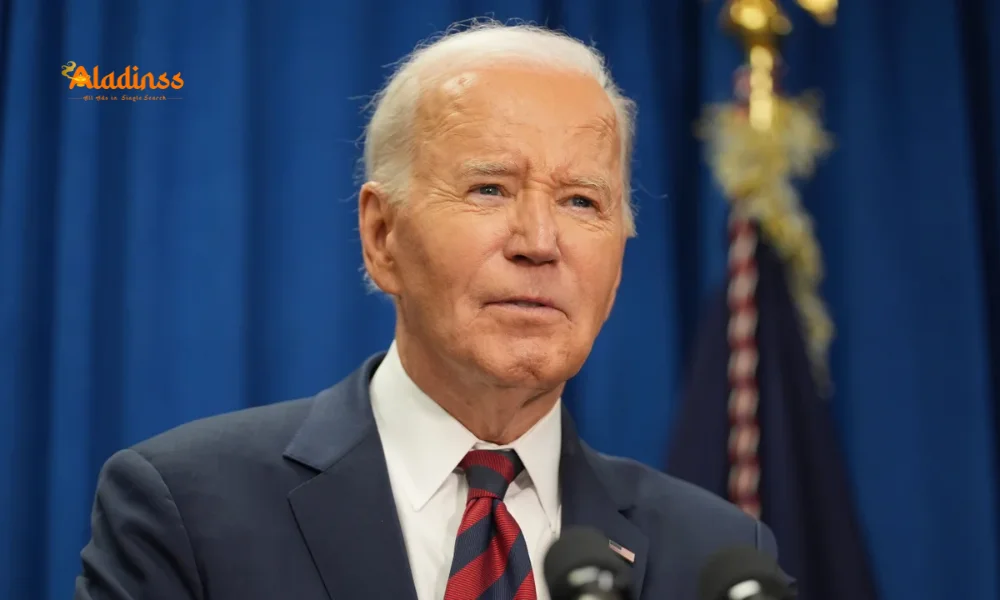Ashley Tellis Arrest: Charges on Classified Docs

Ashley Tellis Arrest: Indian-Origin US Expert Faces Charges for Classified Documents and China Ties

In a shocking turn of events that has reverberated through diplomatic circles, Ashley Tellis, a prominent Indian-origin strategic expert and longtime advisor on US-India relations, was arrested in Virginia on October 11, 2025. The 64-year-old scholar faces serious federal charges for the unlawful retention of classified national defense information and alleged unauthorized meetings with Chinese officials. This Ashley Tellis arrest has stunned colleagues and policymakers, raising profound questions about national security protocols and the vulnerabilities in high-level advisory roles amid escalating US-China tensions.
Tellis, a naturalized US citizen born in Mumbai, built a distinguished career spanning decades in Washington, influencing policies across Republican and Democratic administrations. His expertise on South Asian geopolitics made him a go-to figure for think tanks and government bodies, but the allegations of hoarding over 1,000 pages of top-secret documents and engaging in suspicious interactions with Beijing representatives have cast a long shadow over his legacy. US Attorney Lindsey Halligan described the case as posing a "grave risk to the safety and security of our citizens," underscoring the potential threats to American interests.
The FBI's investigation, detailed in an unsealed affidavit, paints a picture of systematic mishandling of sensitive materials, with surveillance footage capturing Tellis leaving secure facilities with briefcases believed to contain pilfered files. As the legal proceedings unfold in the Eastern District of Virginia, observers are dissecting the implications for bilateral ties and the scrutiny of diaspora experts in strategic affairs.
Background: Who Is Ashley Tellis?
Ashley Tellis's journey from the bustling streets of Mumbai to the corridors of power in Washington is a testament to intellectual prowess and strategic acumen. Born in 1961, he completed his early education at the prestigious St. Xavier's College in Mumbai before venturing to the United States for higher studies. Tellis earned both his Master's and Ph.D. in political science from the University of Chicago, institutions renowned for shaping global policy thinkers. His doctoral work focused on international relations and security studies, laying the foundation for a career dedicated to dissecting complex geopolitical dynamics.
Upon entering the US Foreign Service in 1985, Tellis quickly rose through the ranks, serving as a commissioned officer until 1990. His diplomatic postings included key roles in South Asia, where he honed his understanding of regional power plays. Transitioning to the private sector, he joined the RAND Corporation as a senior policy analyst, contributing to seminal reports on nuclear proliferation and Asian security. Tellis's analytical rigor caught the eye of policymakers, leading to his appointment on the National Security Council (NSC) staff during President George W. Bush's administration from 2001 to 2005.
As special assistant to the president and senior director for strategic planning, Tellis played a pivotal role in crafting the landmark US-India Civil Nuclear Agreement of 2008. This deal, which ended India's nuclear isolation and fostered deeper strategic partnerships, is often hailed as a cornerstone of contemporary bilateral relations. Tellis's involvement extended beyond the Bush era; he advised subsequent administrations, including as senior advisor to the US ambassador in New Delhi from 2010 to 2012. His tenure bridged partisan divides, making him a rare bipartisan figure in foreign policy.
Today, Tellis holds the Tata Chair for Strategic Affairs at the Carnegie Endowment for International Peace, a premier Washington think tank. As a senior fellow, he authors influential papers and op-eds, frequently contributing to outlets like Foreign Affairs. His recent essay critiqued India's foreign policy alignments with Russia and Iran, questioning New Delhi's capacity to counterbalance China economically. These views, while controversial in India, positioned him as a candid voice advocating for closer US-India alignment in the Indo-Pacific. Books such as "Striking Asymmetries: Nuclear Transitions in Southern Asia" and "Revising U.S. Grand Strategy Toward China" further cement his stature as a thought leader.
Tellis's dual heritage-Indian roots and American citizenship-lent authenticity to his analyses, fostering dialogues between Washington, New Delhi, and even Beijing. He participated in track-II diplomacy initiatives, moderating discussions on regional stability. However, the Ashley Tellis arrest has prompted reevaluations, with some X users speculating on undisclosed influences, as seen in posts from geopolitical commentators like @AdityaRajKaul highlighting the irony of his China critiques amid alleged ties.
The Charges: Unlawful Retention and Suspected Foreign Contacts
The core of the case against Ashley Tellis revolves around violations of 18 U.S.C. § 793(e), the Espionage Act provision prohibiting the unauthorized retention of national defense information. According to the FBI affidavit unsealed on October 14, 2025, Tellis allegedly accessed and printed sensitive documents from secure facilities at the Department of Defense and State Department in September and October 2025. Surveillance videos reportedly show him departing these buildings with a leather briefcase, later confirmed to hold classified materials.
A raid on his Vienna, Virginia residence on October 11 yielded over 1,000 pages marked "Top Secret" or "Secret," stashed in locked filing cabinets, his basement office, and even black trash bags. Among the haul were files on US Air Force tactics, military aircraft capabilities, and operational techniques-details that could compromise American military advantages if disclosed. Prosecutors allege Tellis renamed digital files, such as dubbing a 1,288-page military tactics document "Econ Reform," to evade detection.
Compounding the retention charges are allegations of multiple unauthorized meetings with Chinese government officials from 2022 to 2025. The affidavit details dinners at a Fairfax restaurant, including one on September 15, 2025, where Tellis arrived with a manila envelope absent upon departure. Earlier encounters in 2023 and 2022 involved discussions on China-Iran relations, artificial intelligence advancements, and US-Pakistan dynamics. On two occasions, Chinese representatives presented gift bags, prompting speculation of material exchanges.
- September 12, 2025: Tellis requested a colleague to print classified documents.
- September 25, 2025: Printed US Air Force materials on aircraft operations.
- Over 1,000 pages recovered, including top-secret files on military strategies.
- Multiple Fairfax dinners with PRC officials, flagged for potential disclosures.
- No espionage charges yet, but investigation ongoing for unauthorized sharing.
While formal espionage indictments remain absent, the volume of documents and foreign contacts suggest deeper probes. Tellis was arrested en route to a family trip to Rome, highlighting the swift FBI action. If convicted, penalties include up to 10 years imprisonment, a $250,000 fine, and asset forfeiture, though sentencing guidelines may temper outcomes based on his clean prior record.
Career Milestones and Bipartisan Influence
Tellis's professional trajectory exemplifies the fusion of academia and policy. Post-Foreign Service, his RAND tenure from 1994 to 2001 produced groundbreaking studies on nuclear deterrence in South Asia, influencing US non-proliferation strategies. The Bush NSC role elevated him to architect of Indo-US convergence, navigating congressional hurdles for the nuclear deal-a pact that unlocked civilian nuclear cooperation and technology transfers.
In the Obama era, Tellis advised on the Indo-Pacific pivot, advocating Quad enhancements. Under Trump, he critiqued engagement with Pakistan while pushing India as a counterweight to China. Biden's administration valued his insights on QUAD summits and AUKUS implications. As Carnegie fellow since 2009, Tellis's Tata Chair role underscores his India focus, funding research on strategic autonomy and great-power competition.
His publications, exceeding 100, blend empirical data with prescriptive analysis. "Domestic Constraints on South Asian Nuclear Cooperation" (2006) dissected barriers to regional stability, while recent works like "The India-Pakistan Crisis" explore flashpoint risks. Tellis's media presence-CNN, BBC, and Al Jazeera-amplified his voice, often mediating US-India frictions over trade and human rights.
Bipartisan appeal stemmed from pragmatic realism; he praised Modi's economic reforms yet flagged democratic erosions. This nuance, per X discussions from users like @drsurendrajar, now fuels narratives of divided loyalties, with posts labeling his China critiques as ironic given the allegations.
Legal Proceedings and Immediate Aftermath
Tellis appeared in federal court on October 14, where Magistrate Judge John F. Anderson ordered detention pending a hearing. His legal team, yet to issue a statement, may argue inadvertent retention or academic intent for meetings. The case, docketed in Alexandria, Virginia, draws parallels to high-profile leaks like Edward Snowden's, though Tellis's profile evokes more the think-tank scandals of recent years.
The State Department confirmed his unpaid advisor status and Pentagon contracting via the Office of Net Assessment, prompting reviews of clearance processes. Carnegie distanced itself, affirming ethical standards but suspending Tellis pending inquiry. Director of National Intelligence Tulsi Gabbard, under the Trump administration, vowed rigorous enforcement against mishandling, aligning with post-2024 election pledges.
X reactions, including from @TV9Marathi and @lilastories, blend shock with memes, while @questiqaindia threads analyze fallout. Indian media like India Today and The Indian Express highlight diplomatic ripples, questioning vetting for diaspora influencers.
Broader Implications for US-India Relations and Security
The Ashley Tellis arrest transcends individual culpability, exposing fissures in the US-India strategic embrace. As Quad partners counter China, revelations of a key advisor's alleged Beijing contacts could erode trust in shared intelligence. New Delhi, valuing Tellis's nuclear deal contributions, may quietly reassess track-II engagements, per Economic Times analyses.
For Washington, it spotlights risks in outsourcing expertise to contractors and unpaid roles. The Pentagon's Net Assessment office, recently restructured, faces renewed scrutiny over access controls. Broader US indictments of Chinese espionage-over 20 in 2025-frame this as part of a pattern, per Reuters.
In India, reactions mix vindication-given Tellis's Modi critiques-with concern over diaspora profiling. X posts from @rajani1203 underscore geopolitical realignments, while global observers like Moneycontrol warn of chilled academic exchanges. Ultimately, resolution could fortify safeguards, ensuring expertise serves security, not undermines it.
As the detention hearing approaches, the saga of Ashley Tellis serves as a cautionary chapter in the annals of international intrigue, where intellect meets accountability in the shadow of superpowers.
Comment / Reply From
No comments yet. Be the first to comment!











